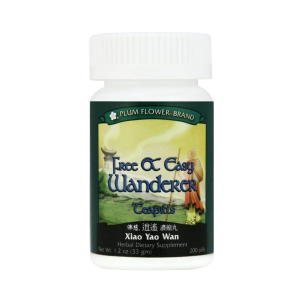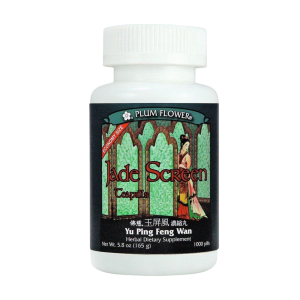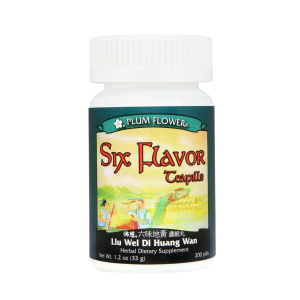
How Chinese Medicine treats dysfunction, disease, health and wellbeing is complementary to Western Medicine
Even at a glance, Chinese Medicine is quite different from Western Medicine. Earthy herbs are favored over laboratory compounds, mind and body are considered one, and diet and lifestyle take center stage. Chinese Medicine is an ancient system developed thousands of years ago, whereas modern medicine is relatively new and constantly evolving. Even within the practice of herbalism, Chinese methods are quite different from Western ones.
Here we’ll explore a few of the most prominent ways Chinese Medicine is different from Western Medicine and some of the reasons why we love integrating East and West!
1. Chinese medicine diagnoses patterns rather than diseases.
When you visit a Western doctor and explain your concerns, you often walk away with a specific disease diagnosis such as “diabetes,” “PCOS,” or “acid reflux.” The treatments for a particular disease tend to be similar, no matter your underlying cause, constitution, or lifestyle.
Chinese medicine, however, treats “patterns of imbalance” rather than diseases. To identify these patterns and diagnose the root issue, Chinese medicine practitioners rely on observation, a thorough health history, and other diagnostic techniques.
With this system, two people diagnosed with “generalized anxiety disorder” may have completely different herbal formula recommendations. Similarly, a person with migraines and a person with irritable bowel syndrome may be recommended the same formula to treat their very different problems. This is all possible because of the interconnectedness of the various organ systems, as well as the body’s makeup of qi, blood, yin, and yang.
2. Chinese medicine aims to correct the root of the problem.
Most conventional medical treatments have one goal: erase the symptom. While this is an important goal, of course, Chinese medicine goes a little deeper.
In Chinese medicine, the symptoms are just the tip of the iceberg. To truly relieve the symptoms, restore health, and prevent the issues from returning, we must correct the root issues.
Within the point prescription of acupuncture treatment, the makeup of an herbal formula, or even the lifestyle and diet recommendations, some aspects will work to address the symptoms (the branch) and others will focus on healing the cause (the root).
The strategy with Chinese herbal medicine is the long game. Natural healing takes time and commitment, but the result is long-lasting change and true healing.
3. Chinese medicine uses a blend of herbs, rather than just one or two like Western herbalism.
In Western herbalism, one main herb is prescribed for a particular issue. For example, a single extract of St. John’s Wort is a common herb used to treat the symptoms of depression; ginger may be recommended for stomach pain.
Chinese medicine, however, takes a different approach. Most Chinese herbal formulas are blends of several different herbs, and sometimes even a blend of whole formulas. The herbs work synergistically with each other and often bring out new properties in each other than they would have alone. They create a root and branch effect to address both the distressing symptoms as well as the underlying cause at the same time.
Combining herbs also helps prevent issues like stomach upset, headaches, or other irritations because soothing herbs are added to mitigate any negative effects of certain herbs.
4. Chinese medicine takes a multi-pronged approach.
Chinese medicine is famous for its multi-pronged approach to wellness. Although acupuncture and herbal medicine are the most well-known treatment methods in Chinese medicine, practitioners use a range of techniques to help their patients heal.
For instance, a Western doctor may prescribe a medication or a physical therapy plan to a patient to treat a pain condition like back pain. A Chinese medicine practitioner, on the other hand, is likely to recommend a back pain herbal formula, topical pain-relieving oils, acupuncture, massage, dietary changes, and lifestyle adjustments to treat the pain.
5. Chinese medicine is first and foremost a preventative medicine.
In ancient times, doctors were paid to keep their communities well. Because of this, the key focus on Chinese medicine is on preventing illness and preserving life, rather than fighting disease.
If you search our Chinese herbal medicine collection, you’ll find many formulas that are health tonics or preventative in nature. Yu Ping Feng Wan pills are a famous formula that helps to prevent the common cold by boosting up the body’s defenses. Xiao Yao Wan is a classic formula that is recommended to ease stress and tension to prevent bigger issues down the line. Even formulas like Liu Wei Di Huang Wan can be used to preventatively nourish the body and minimize the symptoms of menopause.
-
Sale!
 Plum Flower – Free and Easy Wanderer (Xiao Yao Wan)
Starting at $20.63
Add to CartSelect options
This product has multiple variants. The options may be chosen on the product page
Plum Flower – Free and Easy Wanderer (Xiao Yao Wan)
Starting at $20.63
Add to CartSelect options
This product has multiple variants. The options may be chosen on the product page
-
Sale!
 Plum Flower – Jade Screen Teapills (Yu Ping Feng Wan)
Starting at $23.13
Add to CartSelect options
This product has multiple variants. The options may be chosen on the product page
Plum Flower – Jade Screen Teapills (Yu Ping Feng Wan)
Starting at $23.13
Add to CartSelect options
This product has multiple variants. The options may be chosen on the product page
Complementary Healing: The Power of Both East and West
As we can see, there are a few key differences between Eastern medicine and Western medicine. At Best Chinese Medicines, we love Chinese herbal medicine and all it offers! But both Eastern and Western healing styles are important and necessary for achieving good health. Thankfully, Chinese medicine blends beautifully with other alternative and conventional healing methods and is a strong part of an integrative approach.
To learn more about how Chinese medicine works, read our blog or visit our category pages to learn about the power of herbs and holistic healing!


 Plum Flower – Six Flavor Rehmannia (Liu Wei Di Huang Wan)
Plum Flower – Six Flavor Rehmannia (Liu Wei Di Huang Wan)